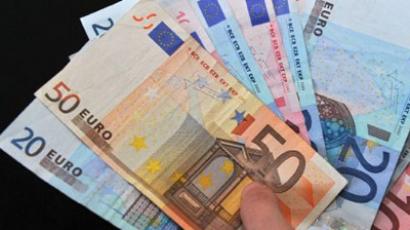Brussels summit stumbles on Eurobonds as France and Germany lock horns
The European Union summit in Brussels has closed, with leaders getting little further in solving the deadlock on the current debt crisis as they failed to agree on Eurobonds.
Common Eurobonds for joint eurozone debt would equal the differences in government bonds’ yields, making debt-servicing more expensive for Germany, and cheaper for debt-troubled Spain and Italy.French president François Hollande was among those who defended common Eurobonds as the only approach to solve the crisis and boost growth in the EU. He stressed it was unfair for Spain or Italy to pay up to 6% interest on their 10-year bonds while Germany enjoys a low 0.07% yield on its two-year debt issuances.But German Chancellor Angela Merkel wasn’t enthusiastic about the idea. "I believe Eurobonds do not contribute to accelerating growth," she said. Earlier German Finance Minister Wolfgang Schaeuble told Germany’s NDR radio that Eurobonds "would not encourage financial discipline, but exactly the opposite.”Earlier the French President pressured European Central Bank management to provide more cheap loans to eurozone banking. But Germany stayed firm again and ruled out using the European bailout fund to rescue banks.Despite this, the Organization for Economic Cooperation and Development and the IMF suggested that the jointly-backed credit for troubled economies would help them to get back on track.Meanwhile, EU President Herman Van Rompuy took an intermediate position, saying that reconciling opposite points of view on Eurobonds will take some time. “Nobody was asking for an immediate introduction of all this stuff,” he added. A looming Greek exit from the euro was another issue the eurozone authorities failed to resolve. They couldn’t agree on how to deal with a probable Grexit, but concurred that they want Greece to stay in the currency union if the nation sticks to bailout agreements.On Wednesday it was reported that eurozone officials told each country in the currency union to assess the fallout from a probable Greek exit and prepare their own contingency plans on how to deal with it.RT's Peter Oliver has more on the EU's preparations for Grexit














